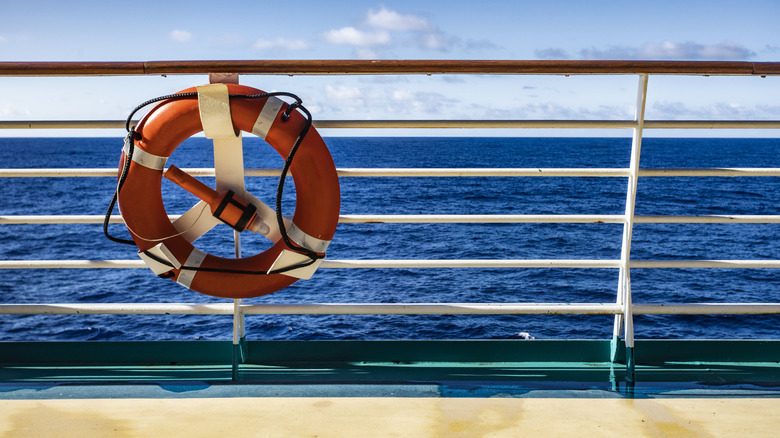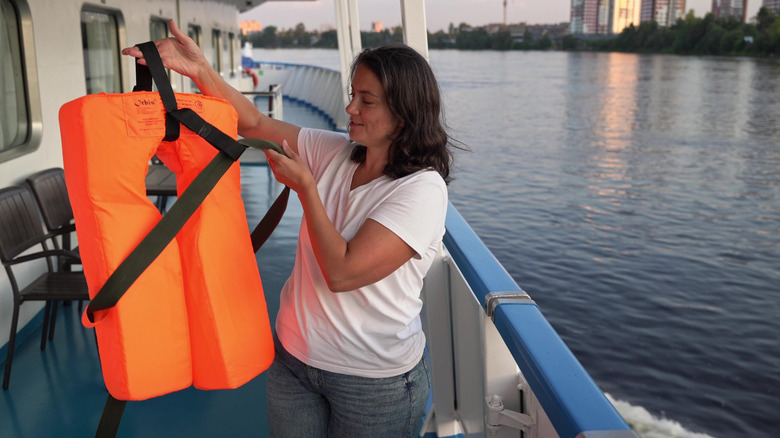What Your Survival Chances Would Be If You Went Overboard On A Cruise Ship
If you've ever stood on a cruise deck and looked over the railing, you know how small the ocean can make you feel. The realization that just a few stories of steel is what separates you from vast open waters can be unsettling. Anxious, intrusive thoughts start to creep in — if I fell, what would happen? Would I survive? Would anyone even notice I was gone?
There are several unsettling reasons some travelers may want to avoid taking a cruise. While falling overboard may be one of the more extreme reasons, fortunately, it's also the least likely. According to a report by the Cruise Lines International Association, there were 212 man-overboard incidents from 2009 to 2019.
But what really happens when a passenger falls overboard? Understanding the ship's protocols can give a clearer picture of survival odds. If a passenger or crew member is seen going overboard, a life preserver is thrown in, and the ship goes under a "Code Oscar" — the alert for a person overboard. The crew then marks the location, contacts the Coast Guard, and turns the ship around. A rescue boat is deployed, and the area is thoroughly searched. The operation continues until the person is found or until the Coast Guard clears the ship to continue on its travels. Knowing the ship's procedures is important, but it is also vital to understand what to do if you find yourself plummeting into the icy water.
Survival chances if you go overboard
Falling overboard is rare — roughly a 1 in 1.25 million chance — but when it happens, survival isn't guaranteed. Of the 212 overboard incidents reported by the CLIA, only 28% survived. Leaning too far over a railing, high winds, slippery decks, and big waves can all turn your relaxing cruise into a life-threatening situation.
If it happens, staying calm and conserving energy is crucial. Panicking burns oxygen and increases the risk of hypothermia, especially in colder waters. Float on your back and keep your head above water. Signal for help by waving your arms or shouting. Avoid swimming after the ship because if the crew hasn't seen you, your best chance is to stay put and wait for rescue.
One of the best ways to be prepared is to attend the mandatory safety drill on your cruise. These provide life-saving information, from how to use life jackets to understanding emergency protocols. Paying attention during this short session could make all the difference in a real overboard situation.
But with the right precautions, survival is possible. In 2022, James Michael Grimes spent 20 hours at sea after going overboard on the Carnival Valor. Battling jellyfish stings, rip currents, and fatigue, he was rescued thanks to a timely response and clear procedures. His experience is a reminder that keeping a clear head, saving energy, and knowing what to do can make all the difference. So the next time you're on a cruise deck, remember a few safety steps and a clear head could mean the difference between a day at sea and a fight for survival.

